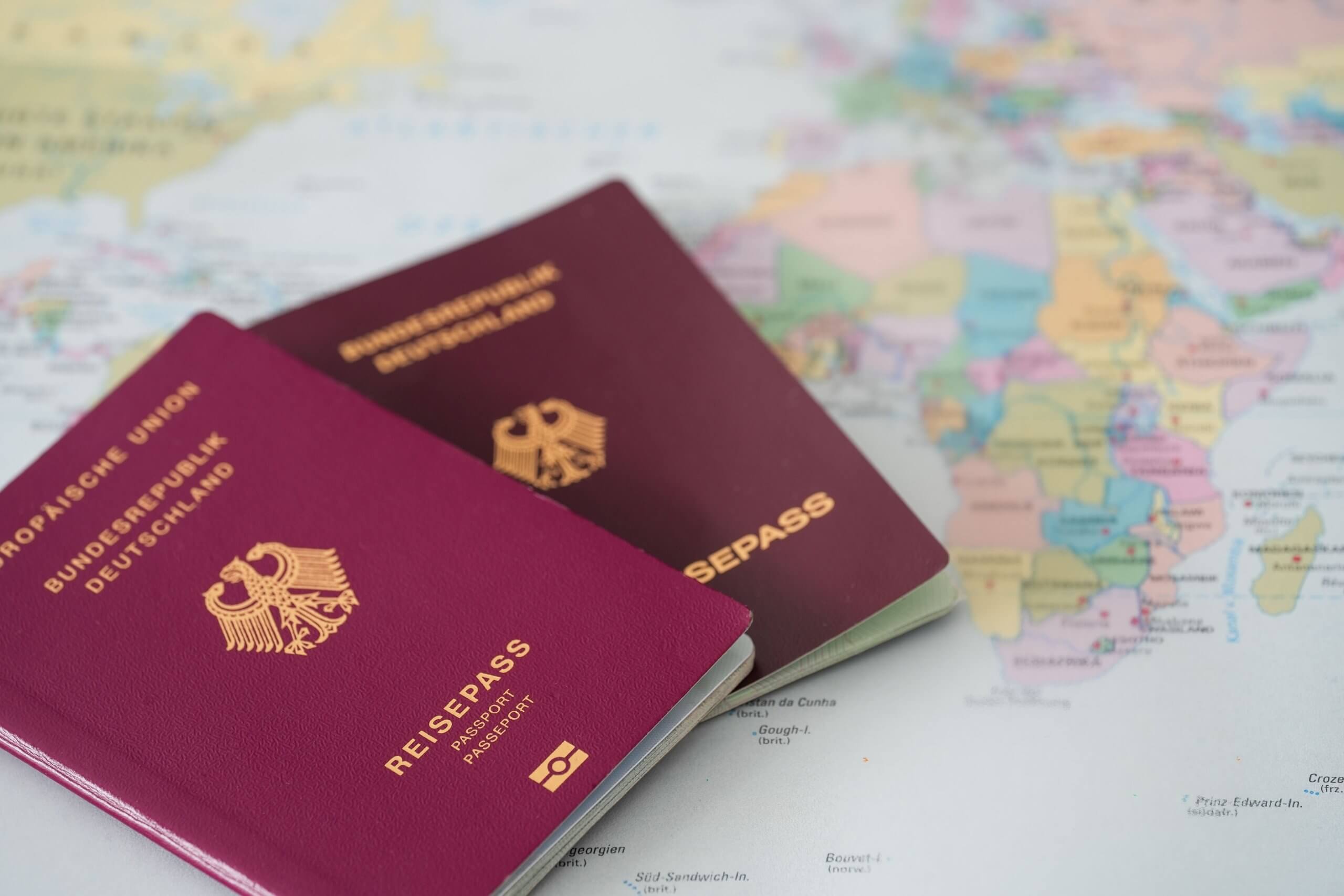Currently, around 14%, or just over 12 million, of the people living in Germany do not have a German passport. Of these, around 5.3 million, i.e. around 44%, have been living in Germany for at least ten years. Only some of those eligible for citizenship are currently seeking it. At 1.1%, the citizenship rate in Germany is below the EU average of 2.0%. This is despite the fact that the German passport has been one of the most valuable passports in the “Passport Index” for years.
Naturalization process
One of the most important changes concerns the minimum period of residence for naturalization. Prior to the amendment, a person generally had to live in Germany for at least eight years to be eligible to apply for German citizenship. The amendment to the law reduces this period to five years (Section 10 (1) sentence 1 StAG).
The new law also aims to create further incentives for integration by further reducing the minimum period of residence in Germany required for naturalization. Thus, the minimum period of residence in Germany will be further reduced to three years for persons who have achieved a high level of integration and can prove this with a C1 language certificate. Such a high level of integration can be demonstrated, for example, by special educational or professional achievements or voluntary work.
In future, applicants for naturalization will have to make a declaration on Germany’s special historical responsibility, in particular for the protection of Jewish life (§ 10.1 sentence 1 no. 1a StAG).
In certain cases, a modification of the language requirements can now also be considered (§10.4, 4a, 6 StAG). Furthermore, in certain cases, e.g. for guest workers who have lived in Germany for many years or for fully employed persons (§ 10, Subsection 1, Sentence 1, No. 3, StAG), receiving welfare benefits is not a naturalization obstacle.
Multiple citizenship
Anyone applying for citizenship in Germany will be able to retain their previous citizenship without restriction. In addition, all German citizens who wish to acquire another nationality can automatically retain their German citizenship and no longer need to apply to retain their German citizenship. In the future, German citizens will be able to hold multiple nationalities.
Currently, dual citizenship is allowed only in rare cases. For more than 15 years, however, more than half of all citizenships have been carried out with the acceptance of multiple citizenships. The trend is increasing. In 2022, the rate of multiple citizenship among citizenships was as high as 74.1%.
New regulation of the loss of citizenship
The reformed law also adapts the regulations on the loss of German citizenship. According to Section 17 (1) StAG, reasons for the loss of German citizenship can be renunciation, joining foreign armed forces or taking part in hostilities of a terrorist organization abroad, or the revocation of an unlawful administrative act.
It should also be noted that children can lose their German citizenship retroactively if the requirements for acquiring German citizenship no longer apply (Section 17 (2) StAG).
Other changes
The requirement of adaptation to the living conditions in Germany is to be replaced by concrete grounds for exclusion such as polygamy and non-observance of gender equality.
The security check procedure will also be digitized and accelerated. At the same time, the group of authorities to which an application for a security check is submitted will be expanded to include security authorities that are also involved in residence and refugee participation procedures.
Prospects
With the “Act on the Modernization of Citizenship Law”, comprehensive changes to citizenship law will come into force on the 27th of June 2024. In particular, the shortening of the minimum period of residence will make citizenship easier. At the same time, the requirements for citizenship and the loss of German citizenship will be adjusted.
It is therefore expected that the new law will significantly increase the number of applications for citizenship in Germany, especially as many applicants hold citizenship of another country and therefore cannot be naturalized without giving up their previous citizenship. The new law is also expected to make Germany a more attractive labor market in the “war for talent” by facilitating access to the German passport, one of the most valuable in the world.
On the other hand, it should also be noted that the significant increase in the number of applications will further slow down processing times. Currently, the processing time is often more than a year due to Brexit and the Covid backlog. In order to avoid long waiting periods, it is preferable to submit all applications as soon as the new law is enacted.
Photo: shutterstock / Wirestock Creators




